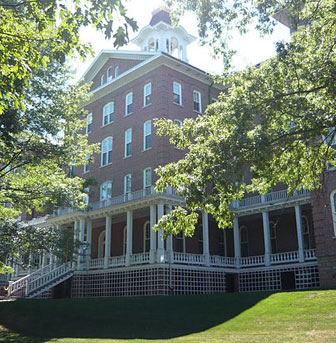Frequently Asked Questions
The following questions have been answered by Dr. Robert Wilburn, CEO and Founder of the Wilburn Group. If you have a question or topic you would like to discuss with Dr. Wilburn, please email him at rwilburn@wilburngroup.com.
- What are the keys to success for non-profits in today's climate?
-
Today more than ever, it is important for every non-profit to be able to state its mission in an honest and compelling way. This mission has to be inspiring to staff, to the board and to donors. The mission also needs to resonate with members of the public who might encounter it through visits to a website or in person, through printed materials or by other means. [close]
- What are the top issues facing non-profits today? How can the Wilburn Group help in these areas?
-
While its mission has to be compelling and inspiring, each organization needs to have a plan that allows it to accomplish that mission in a way that is financially responsible. All too often, it's the nature of the organization to want to do as much as possible in support of the mission. And it's easy to be overly optimistic about revenue potential, or to disregard potential cost increases when the inclination is to try to do more.
Many non-profits today are struggling to meet operating costs. And most of the more mature organizations are confronting the need to upgrade, replace or rebuild existing facilities.
The Wilburn Group's experience—within the non-profit community as well as in business and government—enables it to work with organizations to impose the discipline required to help ensure mission and finances come together.
For destination-driven non-profits, that discipline also is important when it comes to meeting the expectations of the visitor, or the public. Too many non-profits do their planning with the assumption that they know what's best for the visitor. But most visitors come seeking enjoyment. We need to think of learning and enjoying as two sides of the same coin and keep the visitor's perspective—not that of the staff—uppermost in our minds.
I'm impressed by studies that show how much people learn when they want to. It's important to present things in a welcoming and friendly environment. Museums must be an emotional experience. You have to create an environment in which people want to learn—an environment that connects with them emotionally. Otherwise, you could never justify the cost—it would be cheaper to publish a book or produce a DVD or put up a website. [close]
- What is the most challenging aspect of planning and conducting a major capital campaign?
-
For most people, the immediate response would probably have to do with how to go about raising the funds. But that's not what keeps me up at night. I worry about the reaction of all of the people once the project is completed. I want to make sure that the staff and the donors and the visitors who have committed their time, their energy and their money in support of the campaign will look at the results and think it was worth it. [close]
- What trends do you see emerging in the non-profit industry?
-
We're seeing a growth in the number of non-profits. Many focus on areas where government funding has not been adequate to keep up with growing needs. Many new non-profits focus on historic preservation because, over time, there's more and more that proponents want to preserve. In these cases, it's important to make sure that the mission and the finances fit together in terms of what is really worth preserving and the most cost-effective way of doing it.
A number of existing non-profits are looking to mergers as a way of addressing some of their challenges. Even if the public perception is that the merging organizations are quite different, organizations with similar missions and enough overlap in costs to offer opportunities for savings can be candidates for successful mergers. Still, it's important for all parties to recognize that there will be a “survivor” entity and one that will be absorbed.
The Wilburn Group's corporate experience helps us to understand what needs to be done to complete a successful merger. And our experience within the non-profit community enables us to help ensure that the mission and needs of all organizations involved are taken into account. [close]
- What challenges do you believe non-profits will face in the future?
-
The growing number of non-profits, along with possible changes in their tax treatment at the federal, state and local levels, reinforces the need for a strong, clear, compelling mission, as well as programming and activities that not only support the mission, but also appeal to donors.
Non-profits also increasingly find themselves confronting two ongoing challenges. The first is how best to incorporate technology—including social media—in their outreach, communications, visitation and programming. The second is how the nation's changing demographics can be expected to impact their constituencies, and how best to ensure their outreach, communications and programming address the needs, expectations and interests of these new demographics.
These are also incredible opportunities to help enrich the experience, from the planning stages to the on-site visit, to follow-up activities after the visit. We have worked with non-profits to help ensure that these issues are addressed as part of their planning process. [close]
- What characteristics will be necessary for survival in the future?
-
The key to success is people—having leaders who are able to attract, develop and retain individuals who are capable of bringing together disparate interests and generating a sense of enthusiasm for the institution and its mission. Here, a modest amount of coaching can go a long way.
Management challenges are considerably greater within the non-profit community than the for-profits. Non-profits rely on voluntary commitments—in the form of people and donations— to accomplish their goals. Employees' commitment to the organization and its mission often means that they are willing to work for less than they would at a for-profit company, with fewer perks and little opportunity to share in the financial success of the organization. We have to be creative in recognizing and rewarding our staff and volunteers. [close]
- Is there anyone you've encountered in your past who has helped inspire the vision and mission of your work?
-
For different reasons, I can think of four people with whom I've worked:
Pulitzer Prize winning author and historian David McCullough—He was an honorary member of our board at the Carnegie Institute. He embodies the mission of Colonial Williamsburg, “That the future may learn from the past.” His ability to communicate the importance of our history is unsurpassed.
The late Fred Rogers, creator of Mister Rogers Neighborhood—He was a personal friend and business associate, especially during my years as Pennsylvania Secretary of Education. He had such a total commitment to children and education. And he was always looking for innovative ways to use media and technology.
Supreme Court Associate Justice Sandra Day O'Connor—Justice O'Connor was on the board during my tenure at Colonial Williamsburg. Whatever project she chooses to engage in, you can be certain of her total commitment. She's very demanding, but in the most positive way.
The late Daniel Boorstin, Pulitzer Prize winning author, historian and former Librarian of Congress—He was an emeritus member of our board while I was at Colonial Williamsburg. I would look to him because he believed there was no subject too vast or too complicated to be explained and understood. [close]
- What is unique about your combination of services?
-
The Wilburn Group is committed to helping non-profits get the most out of their scarce resources and achieve their potential. We believe our backgrounds and experiences—with demonstrated success in a wide range of organizations—give us a unique perspective on the challenges that non-profits confront, and the knowledge to offer innovative solutions.
We are a small company. The Wilburn Group representatives with whom you meet when you are discussing a potential relationship are the same people with whom you will interact throughout the duration of the project. [close]
- How does one go about retaining the services of the Wilburn Group?
-
Use the Contact link on this site to get in touch with us. You can also email Bob Wilburn at rwilburn@wilburngroup.com. Or call us at 703.606.3433. We'll be happy to talk with you about your organization and how we might be able to help. [close]







